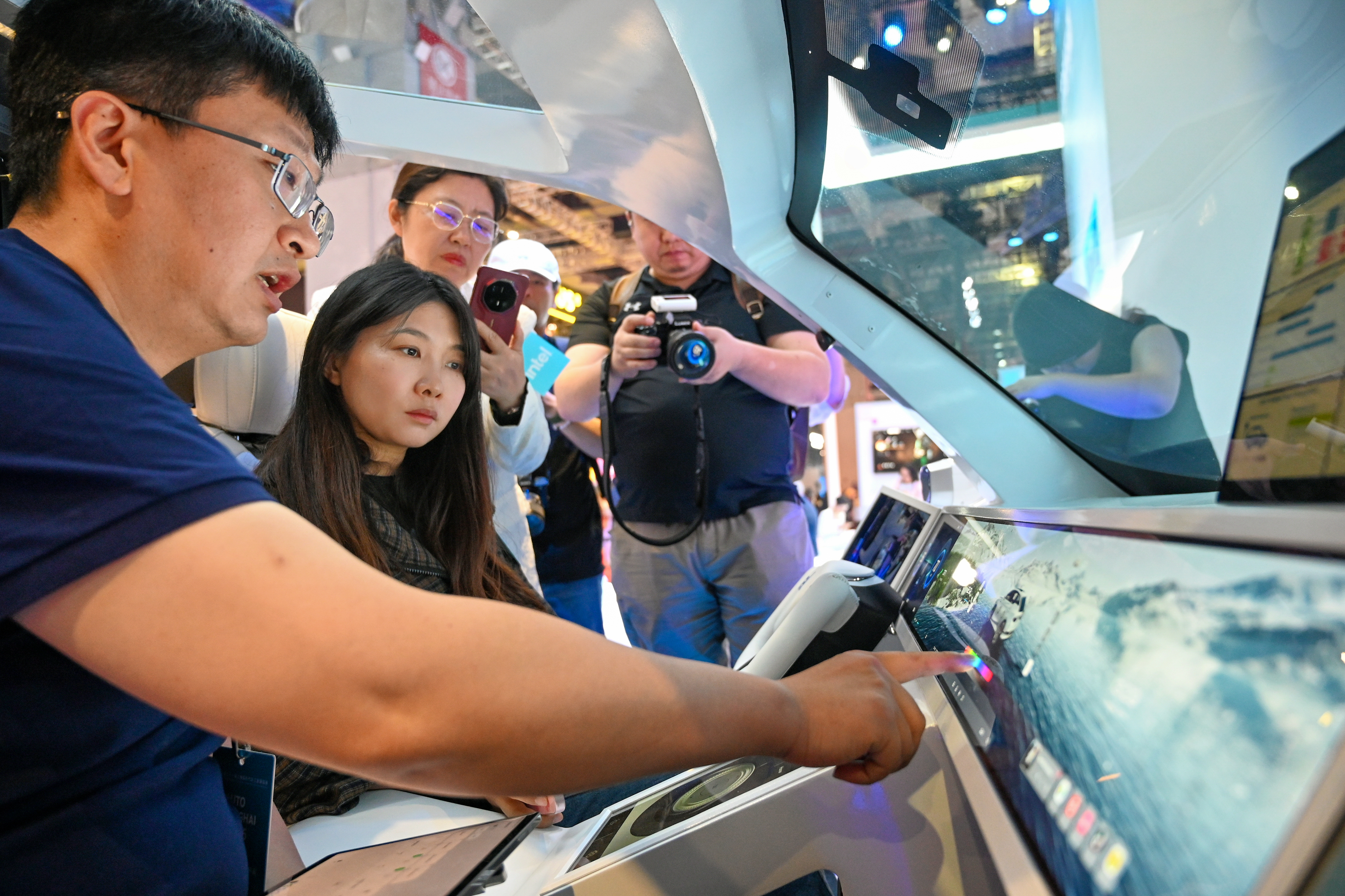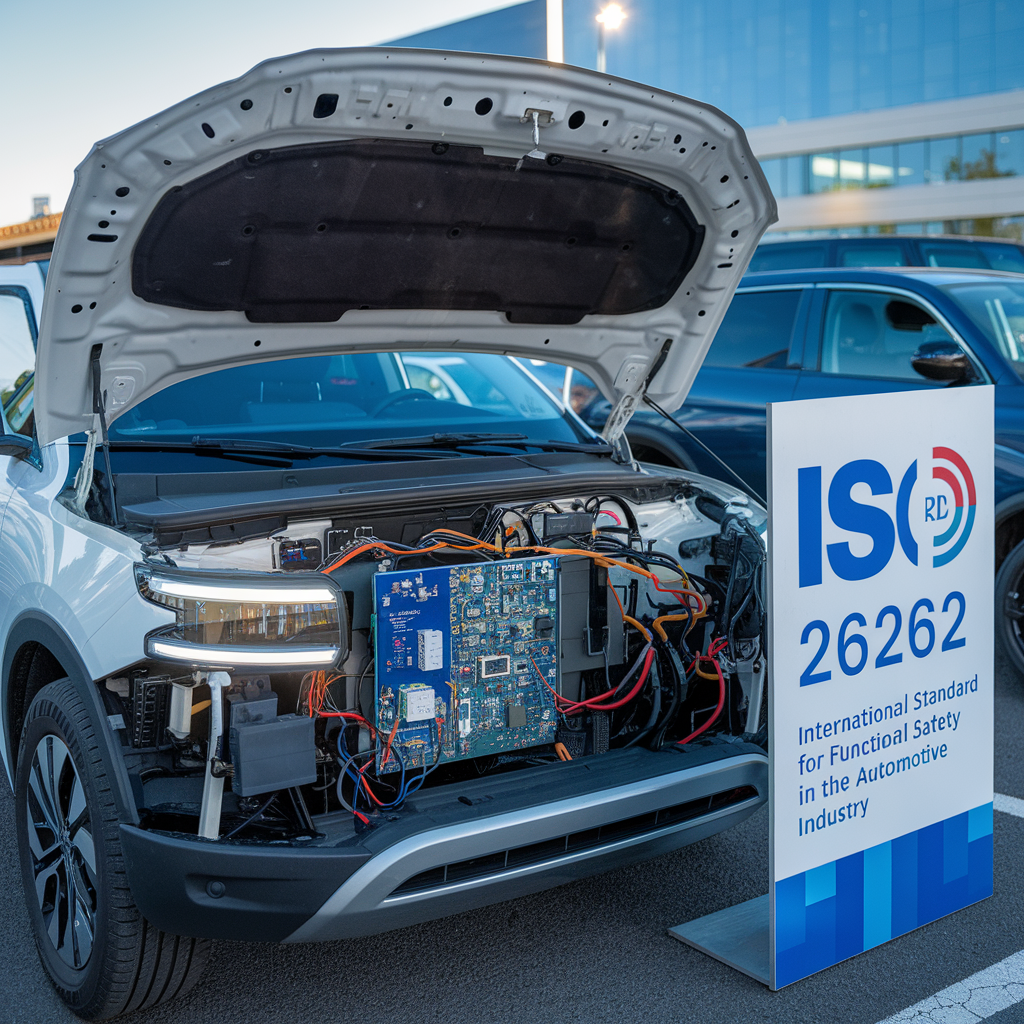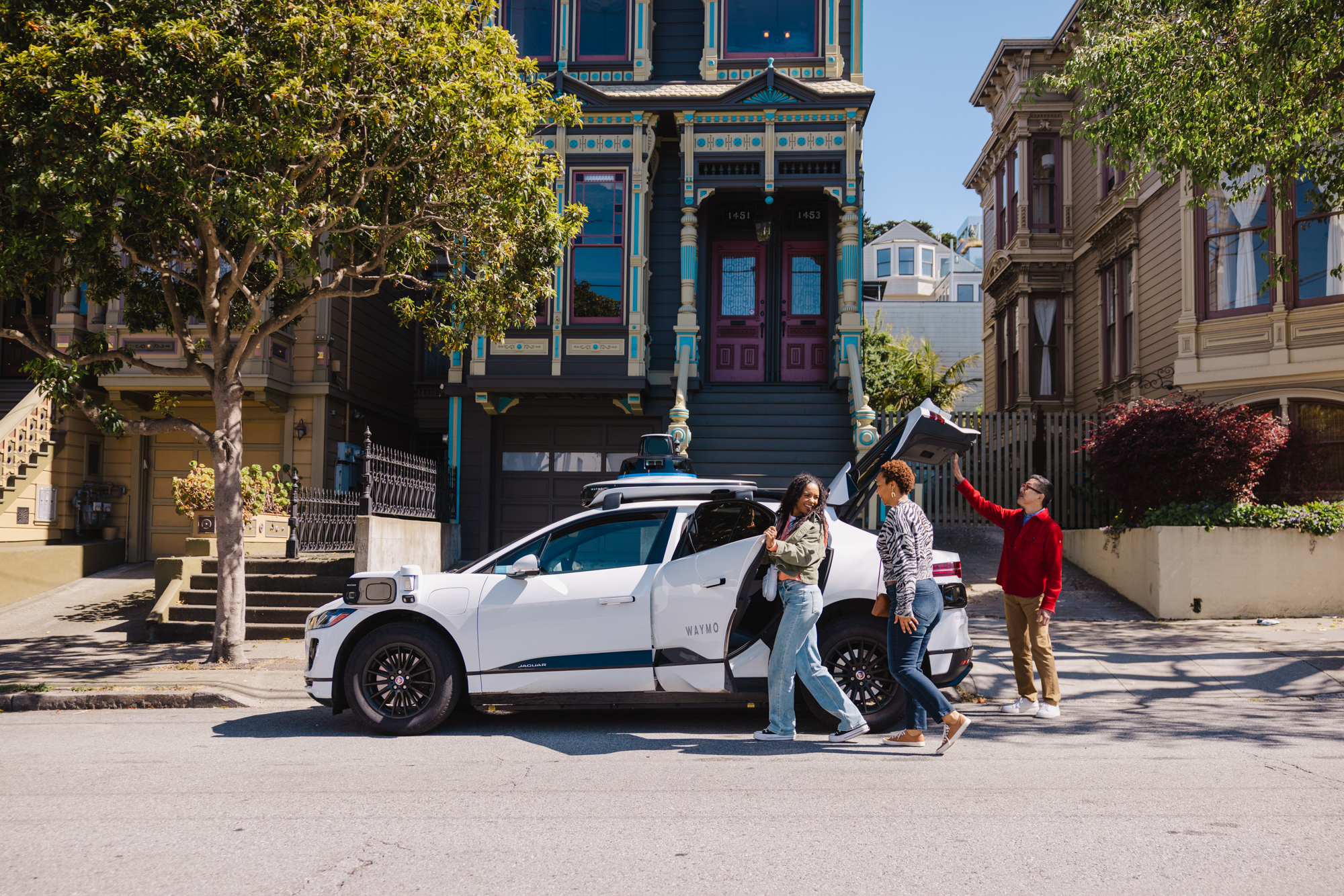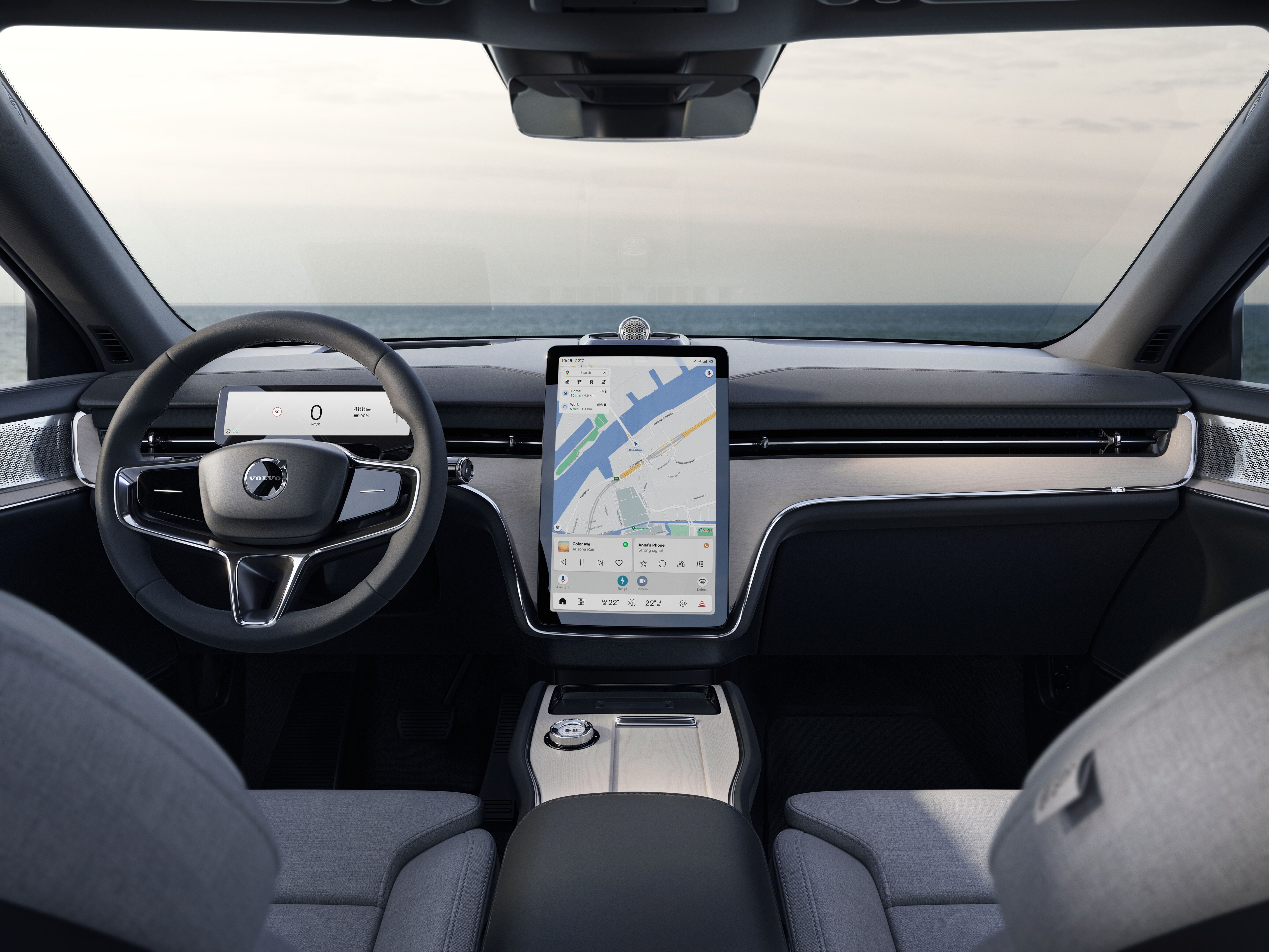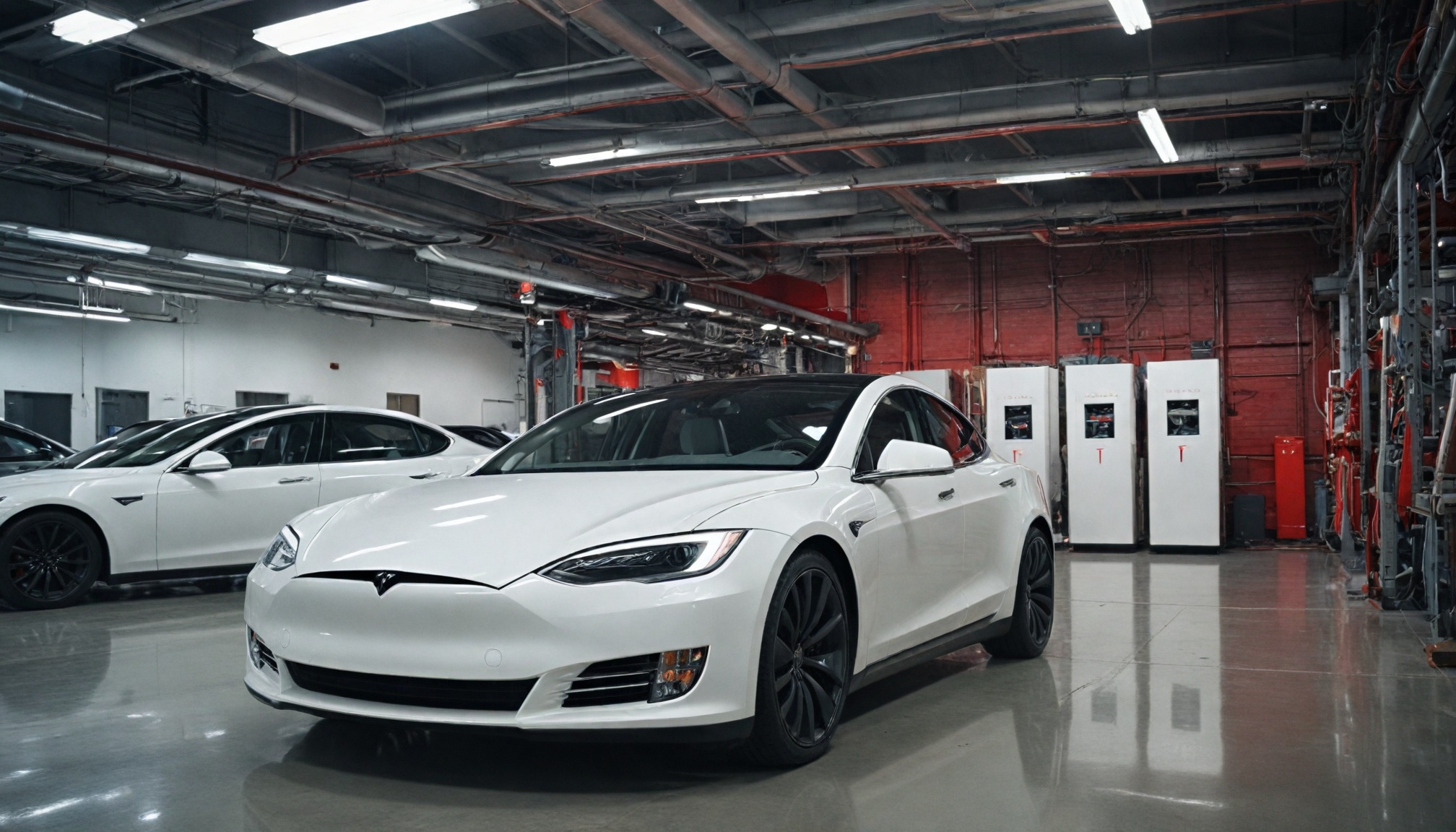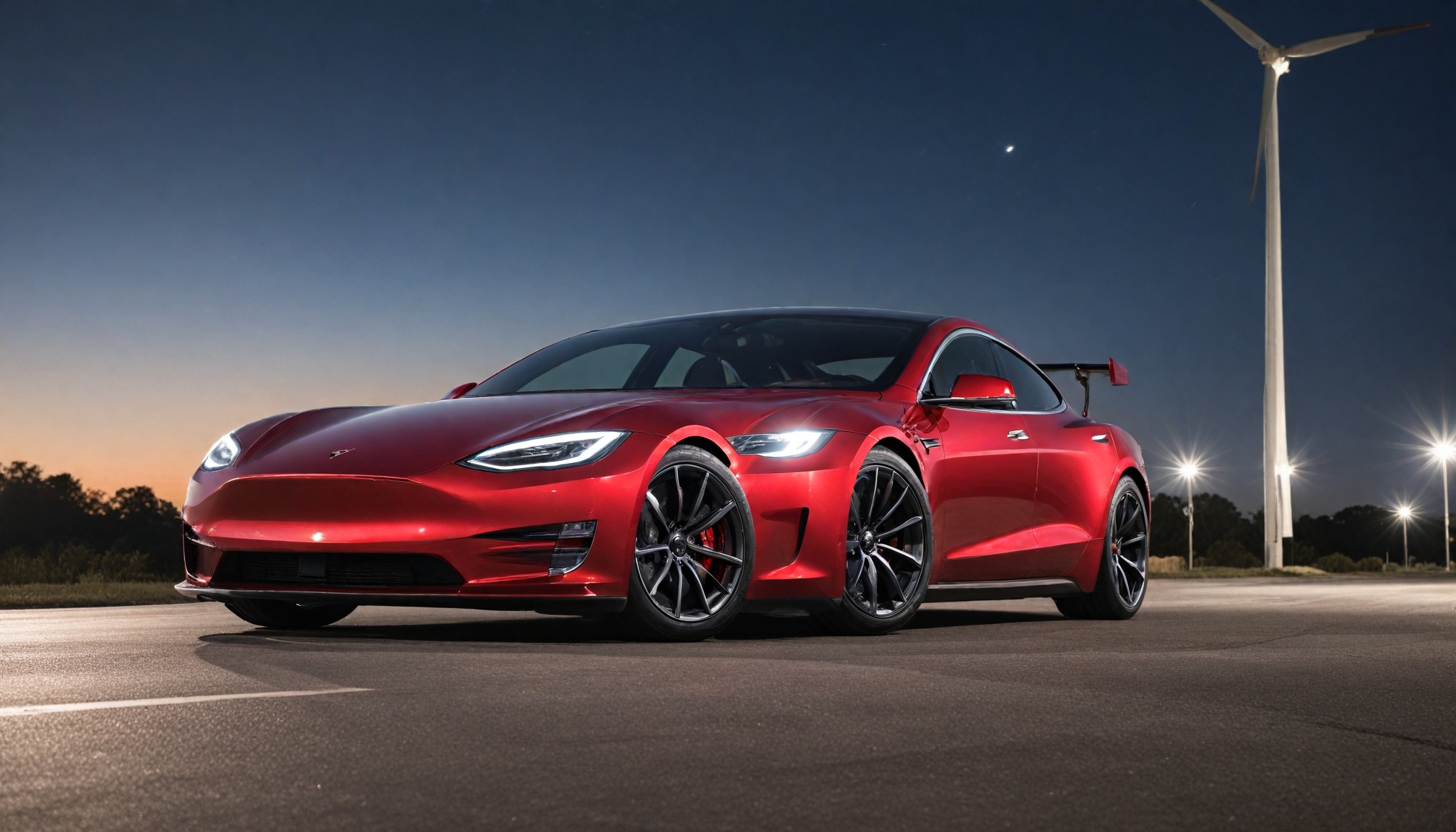
Tesla's AI chip evolution from Dojo to AI5 delivers 40x more power, challenging Nvidia with purpose-built architecture for autonomous driving and AI applications beyond vehicles.

Drivetech Partners
Tesla is rapidly advancing its AI chip technology from Dojo to AI5, representing a 40x leap in computational power that challenges traditional GPU manufacturers like Nvidia and AMD. This accelerated evolution of specialized AI hardware signals a fundamental shift in how autonomous driving systems are trained and deployed, while simultaneously positioning Tesla as a potential leader in AI infrastructure beyond the automotive sector.
Key Takeaways
- Tesla's upcoming AI5 chips are expected to deliver 40 times more power than earlier Dojo versions, drastically outpacing traditional GPU solutions
- Unlike Nvidia's general-purpose GPUs, Tesla's purpose-built architecture is specifically optimized for autonomous driving and video-based AI model training
- Tesla's vertical integration strategy creates a closed ecosystem of hardware, software, and data collection that fuels continuous improvement
- The technology extends beyond vehicles to Optimus robots and potentially AI-as-a-service offerings, transforming Tesla's long-term business model
- These advancements contribute to the global AI arms race, with significant implications for technological leadership and economic competitiveness
Tesla's Accelerating AI Chip Evolution
Tesla has made remarkable progress in AI chip development, transitioning from the original Dojo D1 to the advanced Dojo 2, Dojo 3, and AI5 chips. The company's upcoming AI5 chips represent a quantum leap in performance, anticipated to be up to 40 times more powerful than their predecessors. This dramatic improvement in computational capability is set to transform how autonomous systems learn and operate.
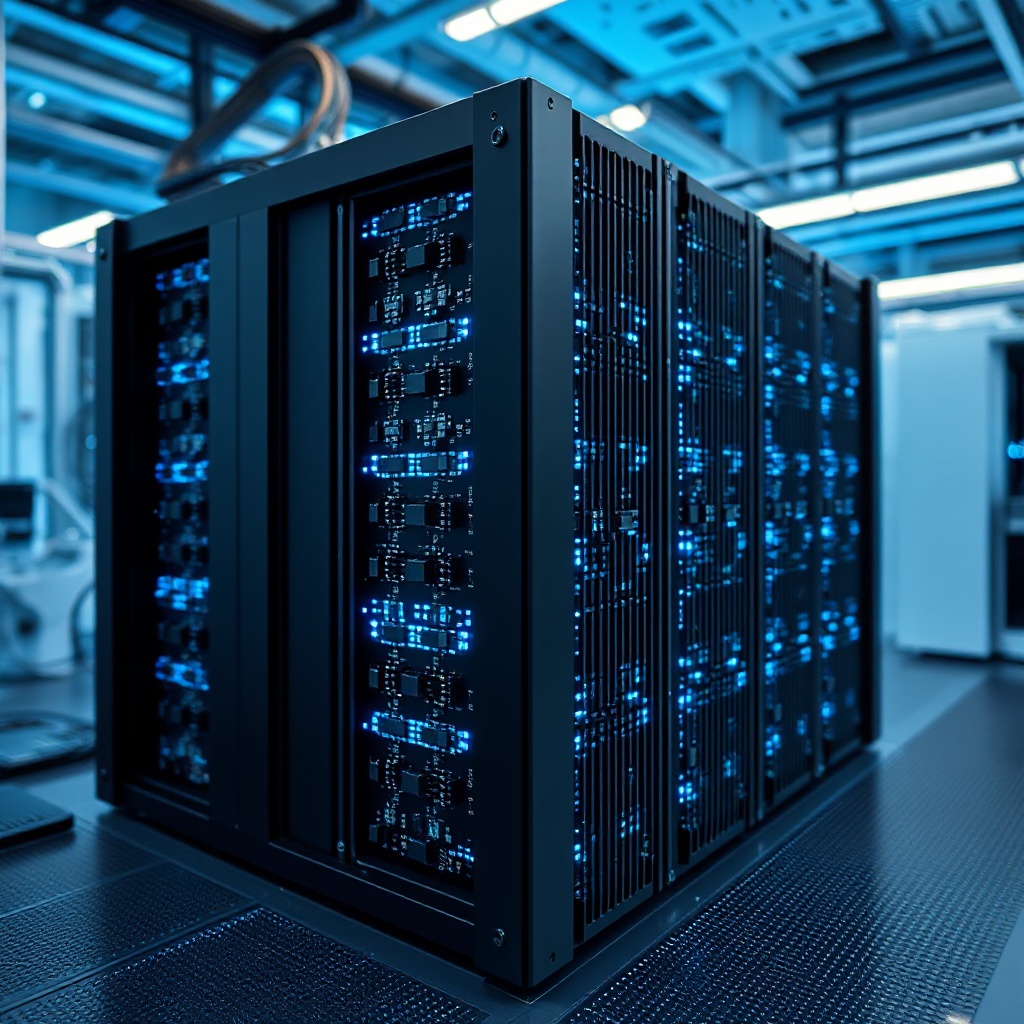
Dojo 2 is scheduled for mass production by the end of 2025 and is expected to rival Nvidia's B200 AI training system. These chips rely on TSMC's cutting-edge packaging technology, featuring a 5x5 array of D1 chiplets that enable scalable AI training. This architectural approach provides unprecedented throughput and efficiency for the complex AI training tasks essential to Tesla's autonomous systems.
Challenging Nvidia and AMD: The Purpose-Built Advantage
Tesla's chips directly challenge industry leaders Nvidia and AMD by departing from general-purpose GPU architecture. While competitors offer multipurpose solutions, Tesla has created hardware specifically optimized for video-based AI model training and autonomous driving workloads.
This specialized approach follows broader industry trends toward application-specific integrated circuits (ASICs), similar to Google's TPU and Apple's M-series chips. By implementing a vertical integration strategy, Tesla reduces dependency on external suppliers while tailoring hardware to its unique AI needs. This focused design potentially offers significant speed and efficiency advantages over general-purpose solutions, reshaping the competitive landscape of AI computing.
Revolutionizing Autonomous Vehicle Intelligence
Tesla's advanced AI chips are critical for accelerating the deep neural networks that power its Full Self-Driving (FSD) and Autopilot systems. The new architecture enables processing exponentially larger volumes of real-world driving data collected from Tesla's vast fleet of vehicles on the road.
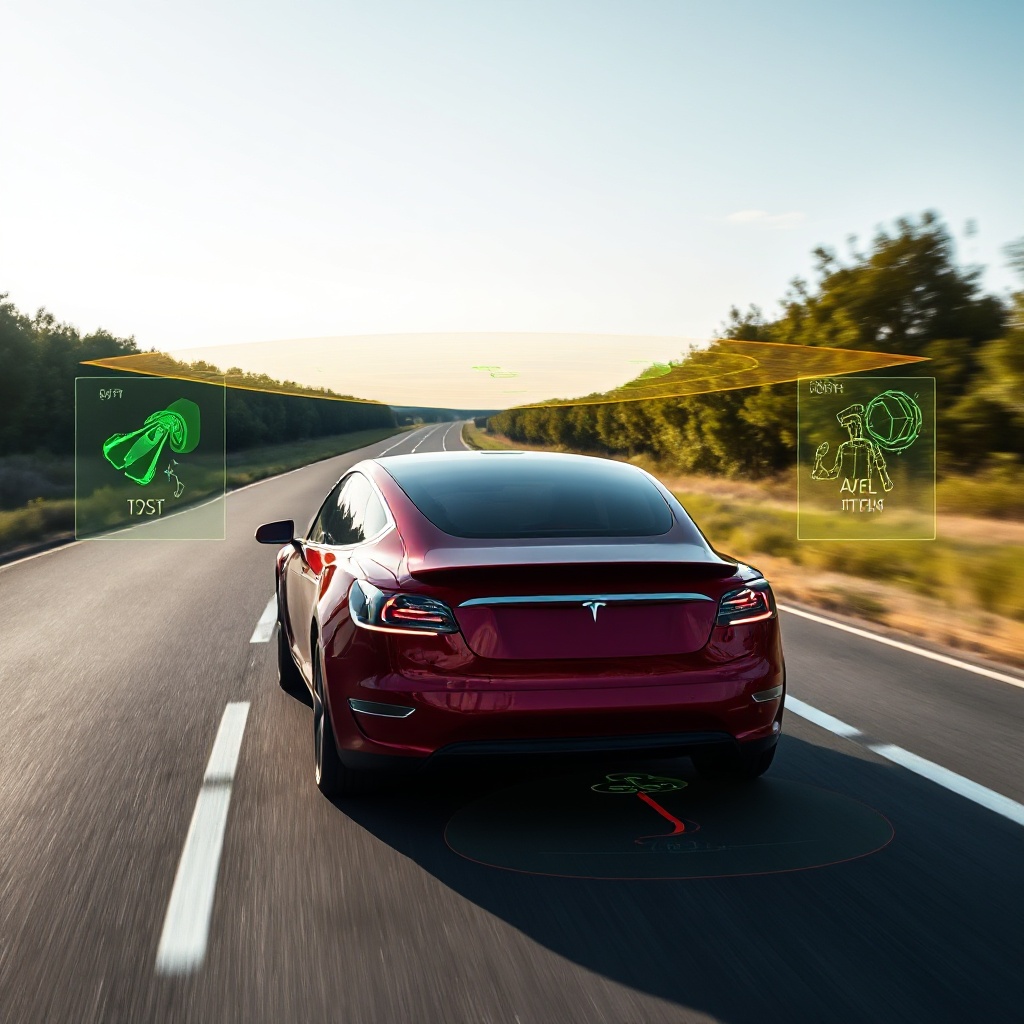
This data-centric approach continuously improves decision-making, predictive safety, and real-time autonomous functionality. Elon Musk has claimed these advancements could make Tesla's self-driving systems "10 to 20 to 30 times safer than a human." The specialized chip design allows for more efficient processing of massive datasets needed for autonomous driving, creating a virtuous cycle of improvement through real-world operation.
Beyond Vehicles: Expanding into Robotics and AI Services
Tesla plans to leverage its AI chip technology beyond vehicles, applying this computational power to Optimus humanoid robots and other real-world AI applications. The chips' ability to process complex visual datasets makes them ideal for robotics and automation systems that must interpret and respond to physical environments.
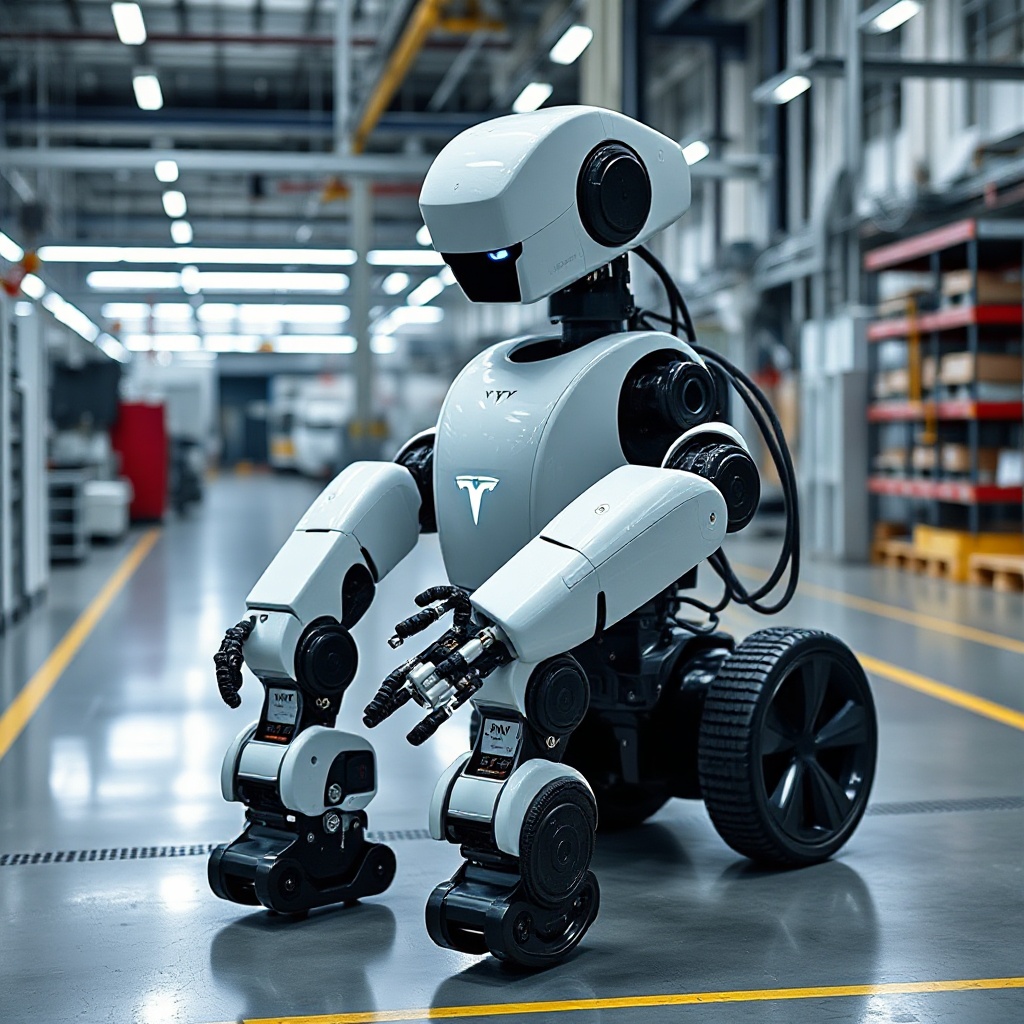
Success with these advanced chips could position Tesla to offer AI compute power as-a-service, similar to cloud offerings from Google and Amazon. This expansion would transform Tesla from an automotive company to a broader technology and AI services leader. The technology could create new revenue streams and market opportunities in enterprise AI and automation, fundamentally changing Tesla's business model and market position.
Redefining Efficiency Standards in AI Infrastructure
Tesla's purpose-built chips deliver superior cost savings and energy efficiency compared to generalized GPU solutions. The integrated architecture reduces overhead, latency, and power consumption for AI training infrastructure. This specialization is establishing new industry benchmarks for performance and cost-effectiveness in large-scale AI deployments.
The efficiency gains make AI training more accessible and sustainable for resource-intensive applications. Tesla's approach could influence industry-wide shifts toward application-specific AI hardware development, as companies recognize the benefits of tailored computational solutions over one-size-fits-all approaches.
Implications for the Global AI Arms Race
Tesla's rapid advances are accelerating the global "AI arms race" with significant geopolitical and economic implications. U.S. export controls on advanced semiconductors have restricted China's access to cutting-edge AI chips. As Tesla and other U.S. companies advance custom AI hardware, the technology gap between competing economies may widen.
This technological advantage has strategic implications for national security, economic competitiveness, and global AI leadership. Tesla's innovations contribute to broader U.S. technological dominance in the critical AI sector, highlighting how private sector innovation can influence international power dynamics in emerging technologies.
The Future of AI Computing: Tesla's Strategic Positioning
Tesla's hardware innovations position it as both a consumer of AI technology and a potential provider of AI infrastructure. The company's integrated approach to hardware, software, and data creates a powerful competitive advantage that few companies can match.
Tesla's AI5 chip represents a foundational technology that could support multiple future business ventures beyond vehicles. The company's strategy includes building a closed ecosystem of AI hardware, software, and applications. These developments could redefine Tesla's long-term business model and market position, potentially transforming it from an automotive manufacturer into a technology conglomerate with diverse revenue streams and market applications.
Sources
Tesla AI
WebProNews: Tesla's Groundbreaking Dojo AI Chip Set to Revolutionize Automation and AI
Sustainable Tech Partner: Tesla AI Strategy: Elon Musk on FSD, Optimus Robots, Dojo Supercomputer
NextBigFuture: Nvidia, AMD, Google and Tesla AI Chips
Data Science Dojo: What is Tesla Dojo?
